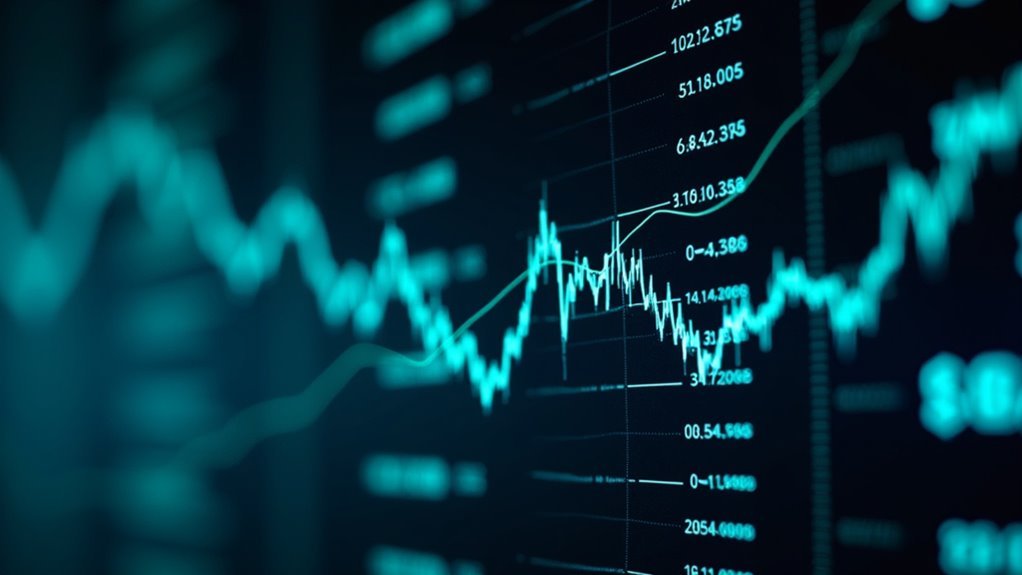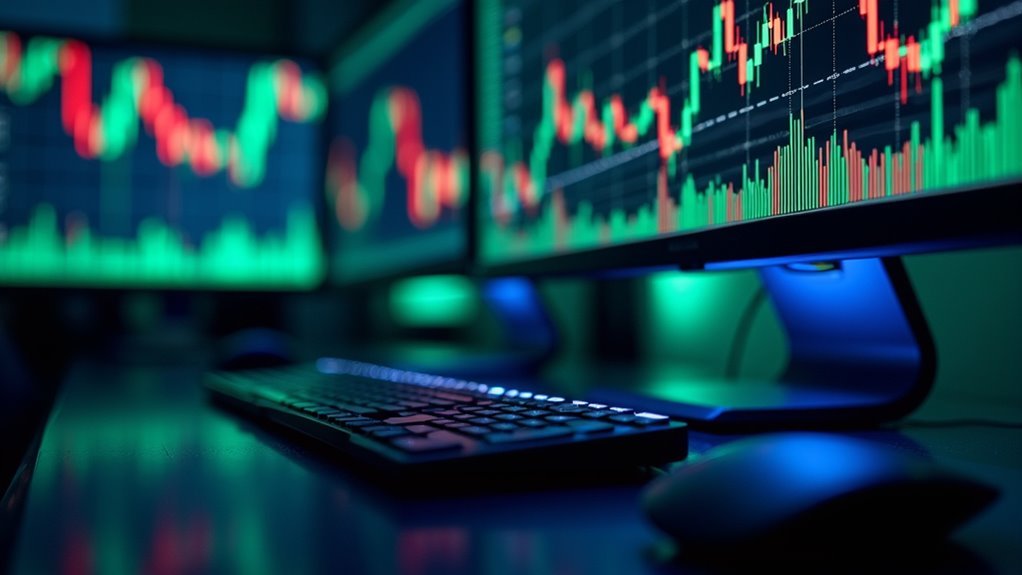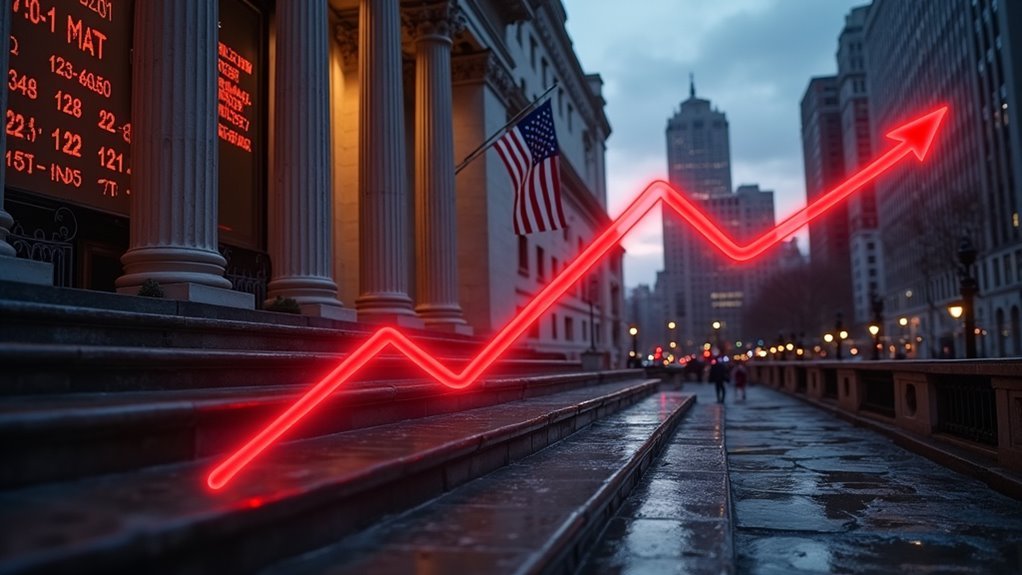Stock market indexes are the financial world's report cards, tracking groups of stocks to show how markets perform. The big players – S&P 500, Dow Jones, Nasdaq, and Russell 2000 – each tell different market stories through mathematical formulas and weighting methods. Like a classroom grade book, they reveal winners and losers, measuring everything from tech giants to small companies. Sure, they're not perfect, but these indexes help decode Wall Street's daily drama.

Stock market indexes are the pulse of Wall Street – those mysterious numbers that flash across screens and send investors into either panic or euphoria. They're actually pretty simple: mathematical tools that measure how a specific group of stocks is performing.
Think of them as the market's monthly report card, except these grades come in every single day, sometimes brutally honest.
The big names in the index world are like a who's who of Wall Street royalty. The S&P 500 tracks America's 500 largest corporate giants, while the Dow Jones Industrial Average follows just 30 blue-chip stocks – yeah, only 30, but boy do they matter. The tech-heavy Nasdaq Composite keeps tabs on over 3,000 companies, many of which probably created the apps on your phone. Each index is constructed by combining similar equities based on specific market criteria.
Wall Street's most famous indexes each tell their own story – from the S&P's 500 giants to the Dow's elite 30 to Nasdaq's tech armies.
Meanwhile, the Russell 2000 watches the smaller guys, proving that size isn't everything in the market. Many investors rely on these indexes to gauge market sentiments and make informed investment decisions.
These indexes aren't just random collections of stocks thrown together. They're built using different mathematical methods – kind of like recipes, but with numbers instead of ingredients.
Most use market capitalization weighting, which basically means bigger companies get more influence. The Dow Jones, being the rebel, uses price weighting. It's like letting the most expensive stocks run the show.
Investors use these indexes for everything from checking the market's temperature to building investment strategies. They're the backbone of index funds and ETFs, those popular investment vehicles that let regular folks invest like the pros.
But here's the catch – indexes aren't perfect. They can be skewed by their largest components, and just because an index is up doesn't mean every stock in it is winning.
The beauty of market indexes is their simplicity in representing complex market movements. They're like the CliffsNotes of Wall Street – giving you the main plot without all the complicated subplots.
Whether tracking broad markets, specific sectors, or geographic regions, these indexes serve as the market's storytellers, continuously narrating the endless drama of global finance.
Frequently Asked Questions
How Often Are Stock Market Indexes Rebalanced?
Stock market indexes follow different rebalancing schedules. Major ones like the S&P 500 do it quarterly, while others opt for semi-annual or annual updates.
The Russell indexes are switching to twice-yearly rebalancing in 2026. FTSE 100? That's quarterly too.
These reshuffles matter – they keep indexes current, kick out the losers, and welcome rising stars.
It's basically index spring cleaning, just more frequent.
Can Individual Investors Directly Invest in a Stock Market Index?
No, individual investors cannot directly invest in a stock market index.
Indexes are just mathematical calculations – theoretical constructs that track market performance. It's like trying to buy shares of a recipe instead of the actual cake.
However, investors can get close by using index funds or ETFs that mirror these indexes. These investment vehicles do the heavy lifting of replicating index performance.
What Happens When a Company Is Removed From an Index?
When a company gets booted from an index, it's not pretty. The stock usually takes an immediate hit as index funds dump their shares.
Trading volume drops, and the company loses its VIP status. Long-term effects can be brutal – less attention from Wall Street, harder to raise money, and sometimes even a slide into penny stock territory.
Think of it as getting kicked out of the cool kids' club, but with serious financial consequences.
Do International Stock Market Indexes Follow the Same Calculation Methods?
While international indexes share core calculation methods like market-cap weighting and free-float adjustments, they're not carbon copies.
Local regulations, trading hours, and currency factors force adaptations. MSCI might handle things differently than FTSE Russell.
Emerging markets? Even trickier. They deal with foreign ownership limits and liquidity constraints.
Different markets, different rules – though the basic math stays pretty similar.
How Do Stock Splits Affect Index Calculations?
Stock splits impact indexes differently based on their calculation method.
Price-weighted indexes like the Dow must adjust their divisor to maintain continuity – otherwise, splits would mess everything up.
Market cap-weighted indexes? They couldn't care less. The math works itself out since the company's total value stays the same.
Index funds have to rebalance their holdings though. More shares, same cake, different slices.








